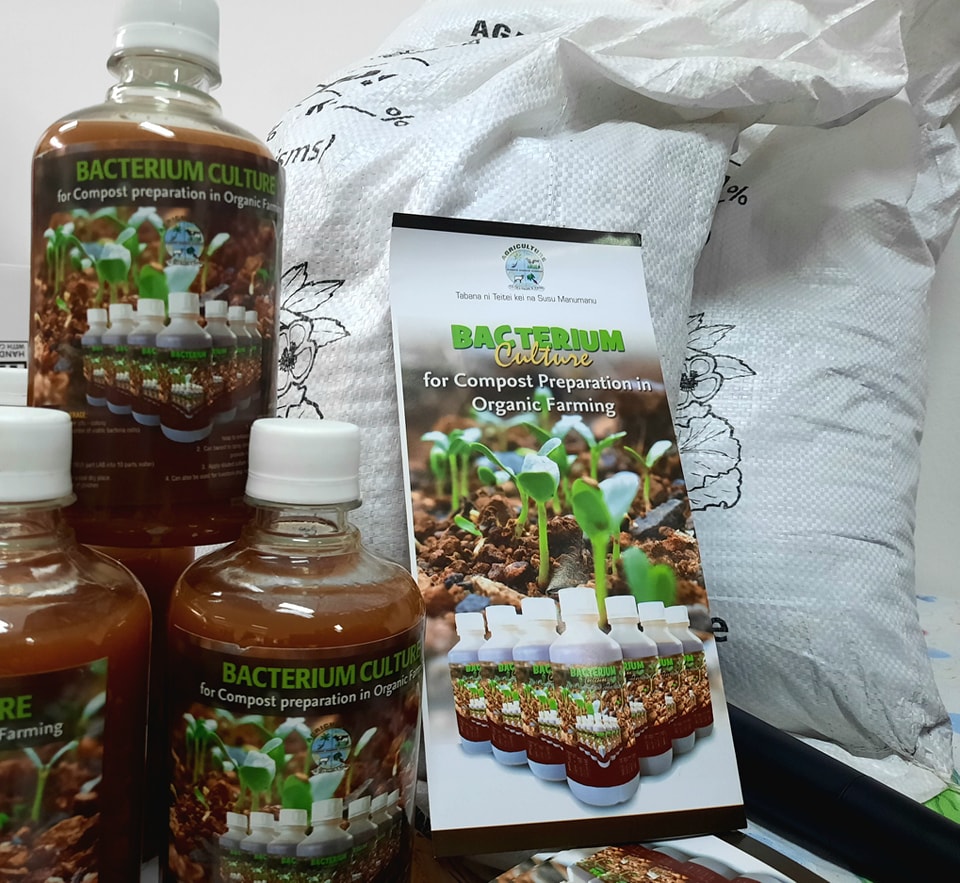Bacterium Culture Initiative Revamped With Renewed Calls for More Organic Farming
August 29, 2022

In order to adopt more
sustainable agricultural practices and practice more organic farming methods,
farmers and agricultural entrepreneurs across the nation are being urged to
change their focus and review their farming practices.
This was the call made by the Minister for Agriculture, Hon. Dr. Mahendra Reddy, while revamping the Ministry's Bacterium Culture Initiative at its Legalega Research Station in Nadi recently.
The Minister emphasized the importance of identifying more efficient and environmentally friendly alternatives to maintain food production in the country, citing rising fertilizer costs and their subsequent negative impacts on farming systems as a heavy toll to pay for Fiji's agriculture sector in the future.
"To ensure the sustainability of our natural resources, organic agriculture has been incorporated into Fiji's production system. Giving plants the nutrients they require through the use of organic fertilizers is healthier.
"The best news is that cultivation improves when compost is made using Bacterium culture and applied to the soil. It also permits the gradual release of nutrients from the soil, which the plants can eventually absorb," Minister Reddy said.
"When the soil is disease-suppressive, the roots become healthy and exude substances that are dependent on composition, allowing for gradual soil remediation."
Since its launch on June 10th, 2020, the Bacterium Culture initiative has seen the establishment of 40 Bacterium Culture tanks in agriculture stations around the country— seven in the Central Division, 15 in the Western Division, two in the Eastern Division, and 16 in the North.
"Farmers are encouraged to bring their own containers and collect bacterium cultures from these locations free of charge. Apart from establishing these tanks in the agriculture offices, we have also established 13 bacterium culture tanks in various farming communities," said Minister Reddy.
"The Ministry has distributed 1,300 litres of pure bacterium culture, which is then diluted at a ratio of 10 litres of water to 1 litre of bacterium culture (13,000 litres of diluted) for farmers to use in adding directly to their crops or assisting in making compost.
Additionally, Hon. Reddy has urged individual farmers, groups of farmers, villages, settlements, and larger communities to begin making their own compost and to use the Bacterium culture to hasten and improve it.
"The Ministry will continue its efforts to reach out to our rural communities and provide the essential training and support to farmers," he said. "Organic agriculture can be enhanced through the use of sustainable technologies and reduced use of synthetic chemicals."
The Ministry not only provides
bacterium culture, but it also produces compost. To date, 150 tonnes of compost
have been produced and distributed to communities, backyard farmers, and
stakeholders with an interest in organic farming. The Ministry will help 10
organic farmers in the establishment of organic inputs during the 2022–2023
fiscal year.
Additionally, 10 communities
will receive assistance in the establishment of compost sites. In addition,
this fiscal year, the Ministry of Agriculture will continue to produce and
distribute 100 tonnes of organic compost.
